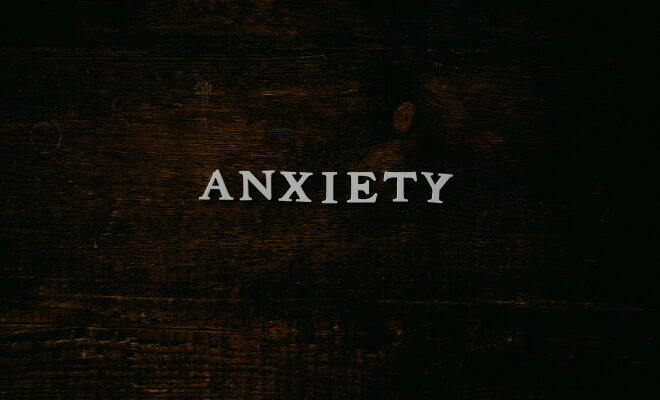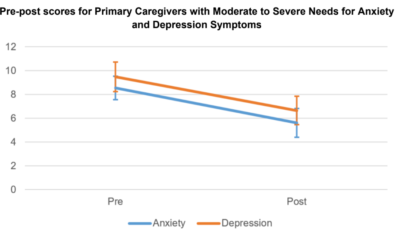
Health x Wellness
Is mental health and smoking linked?
Smoking is a harmful activity that causes negative impact on our respiratory system. Smoking can also cause other issues that go beyond our lungs.
According to a WHO document, tobacco makes people more vulnerable to mental illness. Tobacco use “…increases levels of depression, anxiety and stress, attention deficit hyperactivity disorder (ADHD) and psychiatric symptoms”.
For smokers (or family members and friends of smokers) that are looking to quit, there is an ongoing #StickToQuit campaign by NICORETTE® where smokers can pledge to #StickToQuit smoking for one week and be rewarded with incentives to help them on their quit journey.
These incentives include an exclusive #StickToQuit Kit which includes helpful tools to kickstart the quit journey (worth over SGD 40) and giveaways for pledgees who have taken the step to quit the bad habit of smoking, or even support smokers in the move to quit.
We spoke with Dr Annabelle Chow, a Clinical Psychologist about the link between mental health and tobacco use as well as whether interventions help in getting a family member or friend to quit smoking.
the Active Age (AA): According to a WHO document, mental illness and use of tobacco are linked. What is your perspective on this?
Dr. Annabelle Chow (AC): While the use of tobacco does not directly cause mental illness, it has been linked to several mental health concerns.
Research has shown associations between mental health and smoking. Nicotine increases levels of dopamine in our brain that stimulate positive reinforcing effects, increased energy, and reduced anxiety, and providing a temporary sense of relaxation for individuals when they are stressed or anxious. Despite these benefits, these feelings are temporary and do not actually cure depression, anxiety, or solve the root issues causing concerns. Nicotine reinforces these addictive behaviours by stimulating our brain’s reward pathways. When the individual stops smoking, they may experience withdrawal symptoms such as lowered moods, insomnia, and irritability, and the urge to resume smoking becomes stronger in order to alleviate these negative feelings.
Having a mental illness also increases the risk of tobacco use, and tobacco use in turn causes individuals to become more vulnerable to such mental health concerns.
Statistically, smokers are also more likely than non-smokers to meet diagnostic criteria for mood disorders, anxiety disorders, and psychosis. Due to the neurobiological mechanisms at work, smoking occurs in higher rates in individuals with schizophrenia, anxiety, depression, and ADHD. Smoking is also associated to increased risks of cognitive decline, dementia, and reduced brain volume over time.
AA: Tobacco is recognised to increase mental illness symptoms such as levels of depression, anxiety and stress, attention deficit hyperactivity disorder (ADHD) and psychiatric symptoms. What are some steps we can take to support people who are exhibiting such symptoms whether as a result of smoking or mental illness?
AC: The first step I recommend we take is to learn from authoritative sources about such illnesses and the sources of support that we can offer as non-mental health professionals. Being able to identify the symptoms of mental illnesses such as depression, anxiety and stress mean that we would be able to access and learn about the appropriate resources to support our family and friends. This can include providing a listening ear, pointing them towards appropriate mental health resources, or encouraging them to seek professional help.
Where addictions such as tobacco or alcohol use is concerned, it is important to bear in mind that relapse is a normal occurrence as many smokers attempt to quit multiple times before they become successful.

It may also be helpful to also remind the persons you’re supporting to set goals based on their values. For example, if a friend or loved one is struggling with kicking a tobacco addition, and one of their values is family, it might be helpful to remind them that their perseverance in working towards smoking cessation is in line with their value of family.
We can also celebrate small successes along the way with them and remind them that recovery is not always linear!
AA: Is it as simple as restricting them from smoking, or forcing them to quit through an intervention?
AC: There is no one-size-fits-all model for quitting smoking. The program will vary from person to person depending on their own experiences with smoking and why they smoke. It is important to carefully weigh the options available to find the right quitting program that will work for you.
AA: What are the benefits for people with mental illness to quit or reduce smoking?
AC: The benefits of quitting smoking begin in as little as 1 hour after the last cigarette.
Quitting smoking does not only improve physical health but can greatly improve mental health too – such as improved mood, relieving stress, anxiety and depression.
By quitting, some people have reportedly felt calmer and more relaxed when they do not rely on smoking anymore. Some quitters have also shared that they have an improved quality of life.
The effect of quitting has been shown to be equal, if not more than, antidepressant treatment for mood and anxiety disorders.
AA: In your opinion, are there any good practices you see in Singapore regarding helping smokers reduce or quit smoking that you want to see expanded or reinforced?
AC: There are many resources available that smokers can tap on for support on their journey.
Use Quit-Smoking Aids: Studies have also shown that Nicotine Replacement Therapy (NRT) is effective in reducing cravings, increasing motivation for quitting. NRTs such as gums and patches can double your chances of quitting. The more dependent a smoker is on nicotine, the more essential it is to have some form of quit aid to counter the physiological dependence on nicotine. NRTs are also designed to help with some of the withdrawal symptoms by releasing a small, controlled amount of nicotine without the harmful substances which come in a cigarette, hence helping to control the desire to smoke. Smokers can speak to a pharmacist at Guardian, Watsons or Unity or consult a doctor to find out more about Nicotine Replacement Therapy.
Public Resources And Programmes: There are campaigns such as #StickToQuit that encourage participants to quit smoking for a week. Publicly declaring their goals may help someone feel a sense of accountability which may increase their success in achieving those goals. Additionally, the campaign also includes incentives and rewards to encourage quitters to commit to the journey.
There is also professional help available, where smokers can call the QuitLine and sign up with Health Promotion Board’s I Quit programme.
Telemedicine: For those who are daunted by in-person consultations but still wish to seek medical professionals, they can turn to telemedicine for professional medical help. For smokers who intend to quit, they may seek advice from healthcare professionals who can prescribe NRT to help smokers slowly phase out the habit and reduce withdrawal symptoms.
Photo by Annie Spratt on Unsplash and by hossein azarbad on Unsplash








